AUGUSTA — At an emergency field hospital in Iraq this summer, where Donald Cole assisted surgeons as they tried, sometimes in vain, to save children maimed by war, the University of Maine at Augusta student saw the cost of conversations that never take place.
Cole urged his fellow UMA students, at the university’s convocation Friday, not to be afraid to talk about politics and religion, even though those are difficult, and often taboo, subjects. He said people need to learn how to talk to each other, even if they don’t agree on the subject. He said he saw the consequences of people not learning how to talk to each other in an 11-year-old girl holding her blown-apart abdomen together, after she was hit by a mortar, only to die two weeks later while awaiting her third surgery; and a 4-year-old boy, burned from head to toe by a suicide bomber, who died after 40 days of struggling for life on a cheap stretcher in an overheated tent.
“Why?” he asked faculty members and students gathered on the campus green as their school year began. “Because people have not learned how to talk to each other.”
Cole was in Iraq as a surgical technician with Samaritan’s Purse, an international Christian relief organization.
He noted he wasn’t just talking about war, because violence can result from people not knowing how to talk to each other about politics, religion and many other subjects.
“Every day people suffer more violence because we have still not learned to talk to each other,” Cole said. “And that violence can show up in a car bomb in northern Iraq, or a Dodge Charger in Charlottesville. But the problem with the hatred and intolerance that supports that violence doesn’t start with guns or baseball bats. It doesn’t even start with picket signs and megaphones. It starts with millions of conversations that never take place. Among millions of superficial interactions with our neighbors, while we surround ourselves with the news we like and the TV shows that keep us from thinking about it. We can talk to each other about the latest season of ‘Game of Thrones’ or ‘The Walking Dead,’ but we cannot talk to each other about things that matter. And because we haven’t learned to talk to each other, we haven’t really learned to tolerate each other.”
Cole and other speakers sought to address UMA’s chosen academic theme for the year, which is truth.
Sandra White Hawk, founder and director of the First Nations Repatriation Institute, who served as a commissioner on the Maine Wabanaki Truth and Reconciliation Commission, which worked to uncover how the Maine child welfare system took Wabanaki Indian children from their families and placed them in white foster homes under federal policies dating to the 1950s, said it is important to talk about the truth, even when it is uncomfortable and difficult.
“In embracing the truth, we have to remember to encourage each other, nurture each other, because we know the truth is difficult,” she said.
She said Wabanaki people who suffered as children because of the state policy agreed to speak to the Maine commission she served on, even those who hadn’t even told their own loved ones about the pain they experienced.
“The Wabanaki people allowed themselves to become vulnerable. They reopened old wounds to share the trauma of separation of community and family,” she said. “They did it humbly and without regard for themselves. They shared, hoping there would truly be change, so the children coming behind them wouldn’t have to suffer from the same bias.”
The adoption of truth as an academic theme includes events planned throughout the year, and a theme-related book, “Knowledge: A Very Short Introduction,” by Jennifer Nagel, will be used in multiple classes.
Matthew Dube, assistant professor of computer information services, talked about how something that starts with a true statement can be manipulated, then grow through sharing on social media, where it may be manipulated even further and where, through data-mining, it can be repackaged and spread even further, within like-minded groups.
“Those techniques shape us more than we know,” Dube said. “People hold on to things they believe in. The internet did not create this, but it has put it into overdrive.”
Convocation marks the beginning of a new academic year.
Keith Edwards — 621-5647
Send questions/comments to the editors.


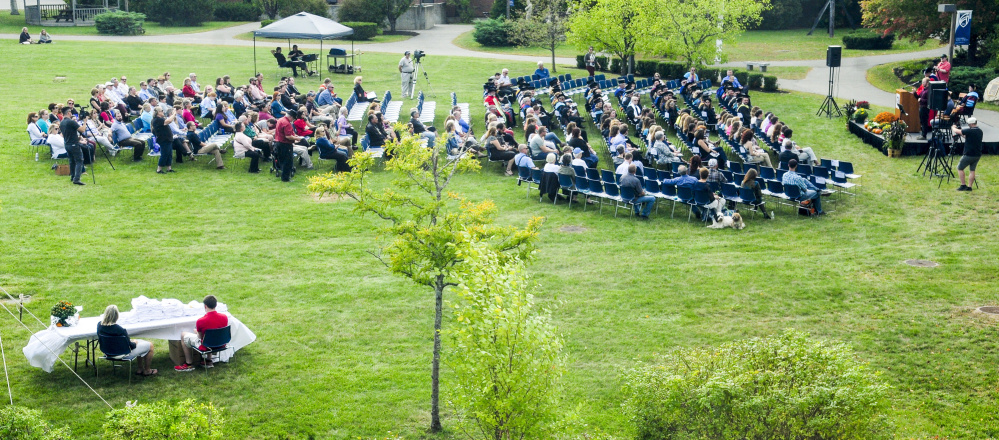
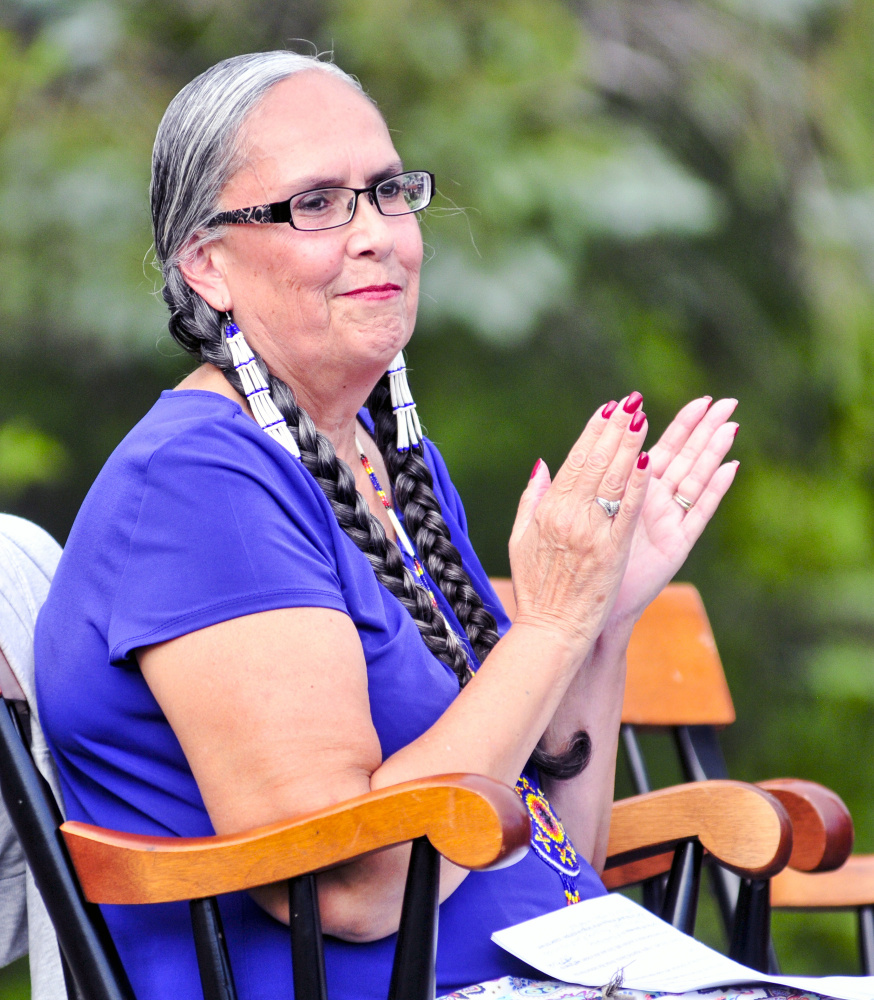
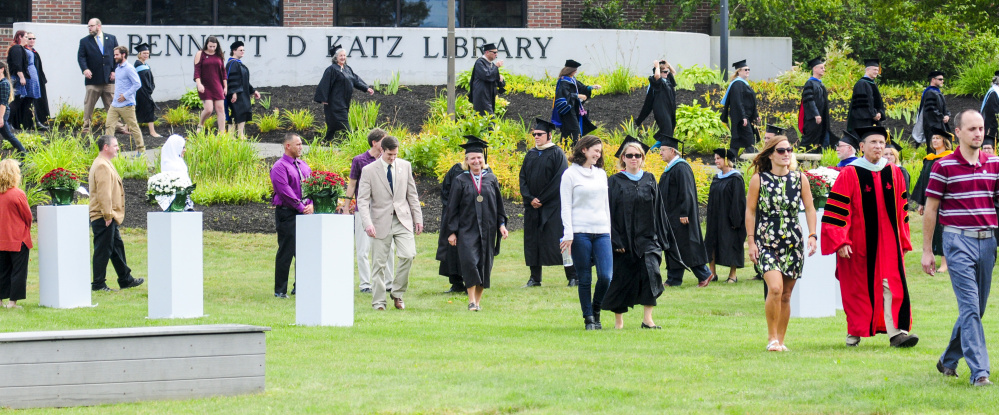
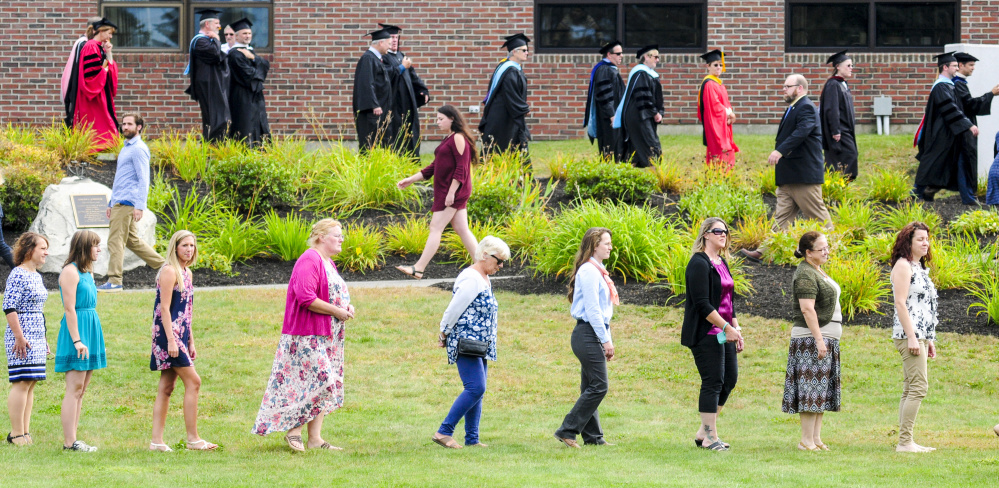
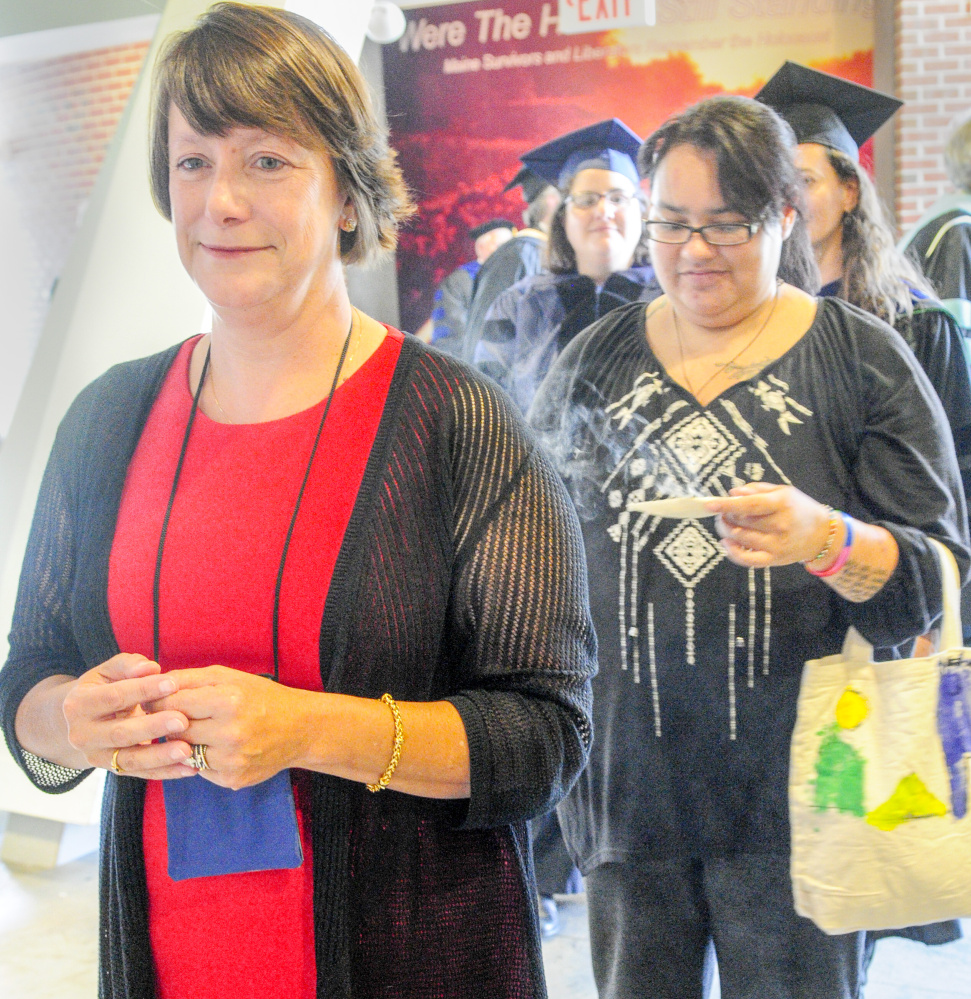
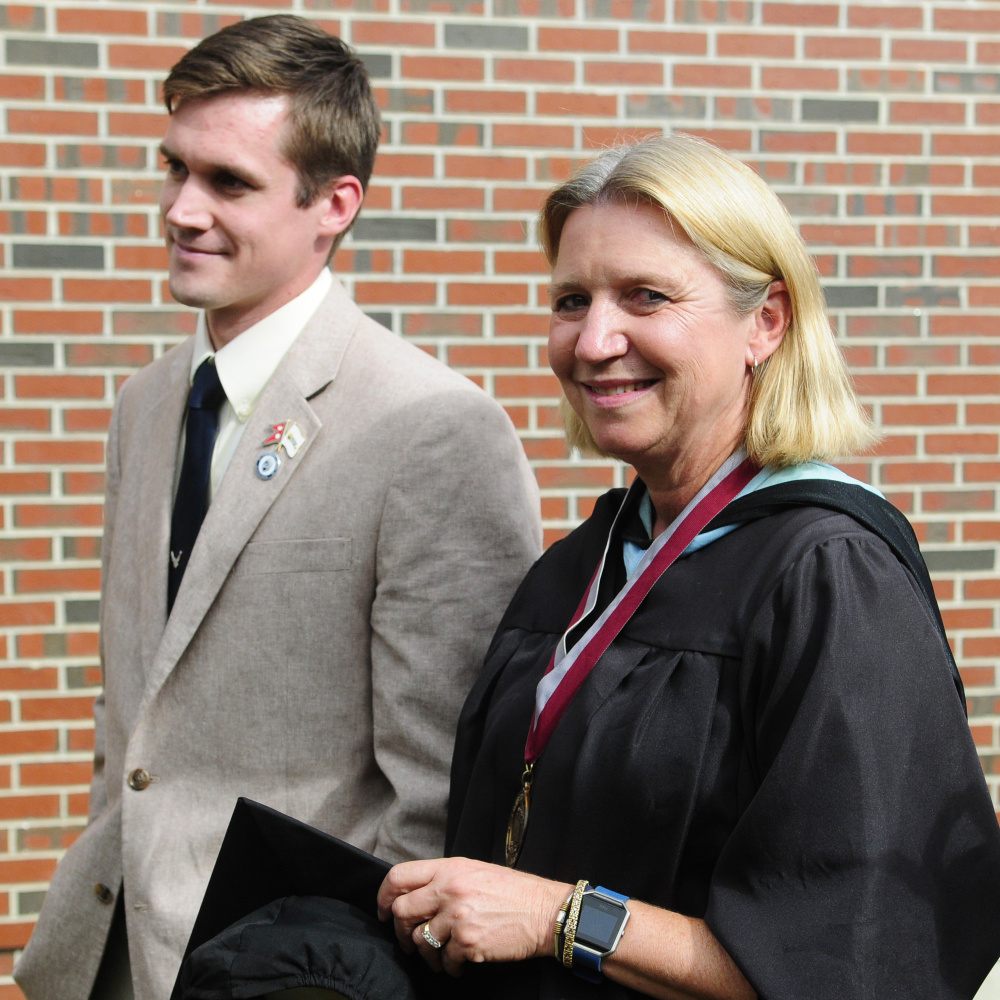
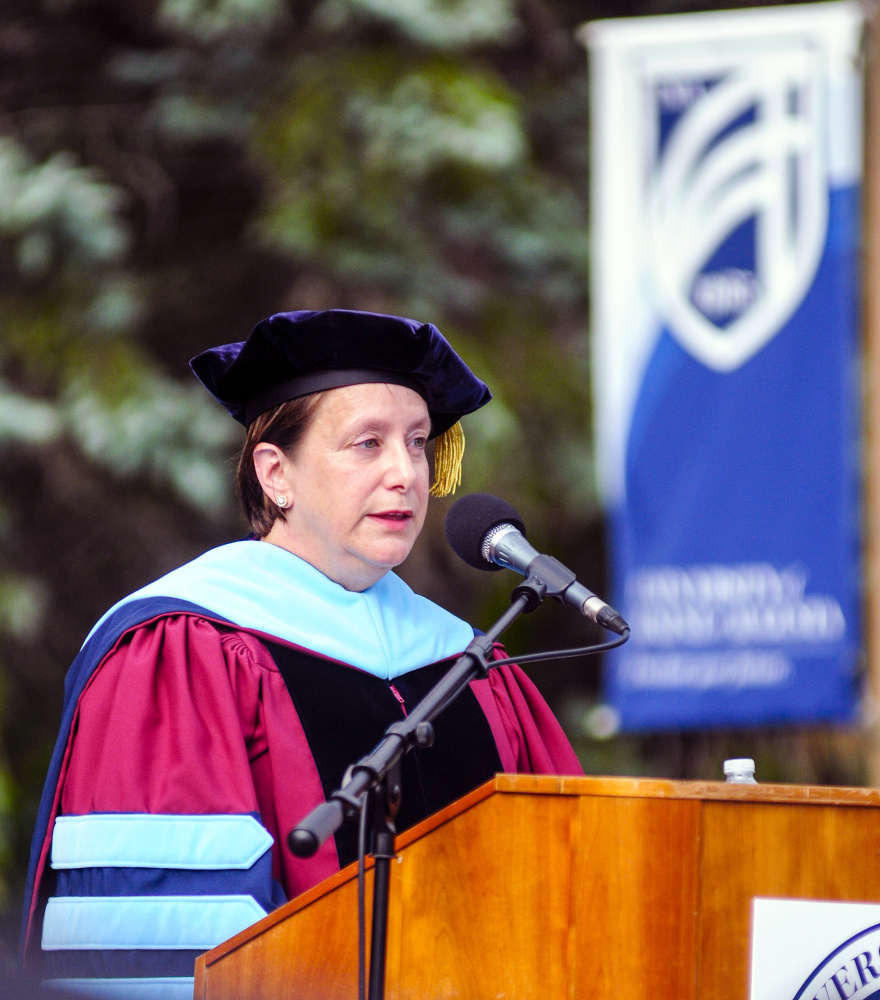

Success. Please wait for the page to reload. If the page does not reload within 5 seconds, please refresh the page.
Enter your email and password to access comments.
Hi, to comment on stories you must . This profile is in addition to your subscription and website login.
Already have a commenting profile? .
Invalid username/password.
Please check your email to confirm and complete your registration.
Only subscribers are eligible to post comments. Please subscribe or login first for digital access. Here’s why.
Use the form below to reset your password. When you've submitted your account email, we will send an email with a reset code.